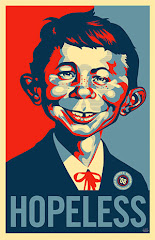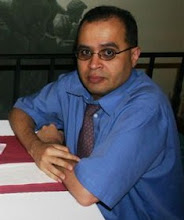The Emigrants by W.G. Sebald is a first person narrative, that reads like a memoir, and told from the point of view of someone who appears to be the author, but it isn’t. There are a couple clues that lead me to conclude The Emigrants is entirely a work of fiction.
First, on page three, the narrator and Clara drove to Hingham. Clara appears to be the author’s wife. According to an online biography, Mr. Sebald’s wife is Ute and they were married in 1967.
Second, on page 29, the narrator moved from the village of W to the small town of S in December 1952. The online biography indicates the author was born in Wertach im Allgu, Germany in 1944, but his family moved to Sonthofen in 1948.
Therein lies the excellence of The Emigrants. It looks and feels like a memoir. The use of photos throughout the novel supports the belief that we are reading four mini biographies: a relative (Ambros Adelwarth), a former teacher (Paul Bereyter), and people he met on two separate journeys (Dr Henry Selwyn and Max Ferber). We are listening to life stories and looking through a photo album at the same time.
The author was born during the latter stages of World War II in Nazi Germany. The author’s father joined the German military in 1929, served in the Wehrmacht, and was a prisoner of war until 1947. Anti-Semitism hovers silently over The Emigrants.
The characters are fictional, but they occupied the real world and the consequences of Nazi rule and the Holocaust. Paul Bereyter is a prime example. Paul, probably, is based on the author’s father. He served six years in the German military, in “the motorized artillery, variously stationed in the Greater German homeland and in several countries that were occupied. He was in Poland, Belgium, France, the Balkans, Russia and the Mediterranean and doubtless saw more than any heart or eye can bear.” (Pages 55-56) The picture of a German soldier sticking his head of a car (page 55) makes the story more authentic.
Paul was one quarter Jewish, or as the Germans referred, three quarters Aryan and he served with others who were not pure Aryan.
In 1935, Paul met Helen Hollaender, an emigrant from Vienna who was visiting the small town identified as S. He was about to start a teaching position, but new German laws prevented him from taking the teaching post. The author does not specify the actual laws, or how the laws were applied to Paul, but our general understanding of history fills in the blanks. Paul was part Jewish and Jews were not allowed to teach in Nazi Germany and not providing the additional details did not lessen the impact of the narration. The lack of specific information strengthens the narrative because we know the history. There is no need for repetitiveness. We don’t have to be told he wants to a teacher, but cannot teach because he’s one quarter Jew.
Furthermore, Paul moved to Besancon to work as a house tutor. While he was away, in 1936, his father, Theodor Bereyter “died on Palm Sunday” because of heart failure, but the underlining reason for the heart attack was that Jewish families were the target of violent anti-Semitic attacks. His mother, Thekla, “fell into depression and died within a few weeks.” (Pages 53-54)
It’s interesting to note Paul had antipathy towards the Catholic Church (Page 36). This could be due to his father dying on Palm Sunday and he is unconsciously connecting his father’s death to Catholism. Also, the Catholic Church is authoritarian in structure, with the pope as the leader of this structure.
Paul’s nightmare worsens when he finds out Helen and her mother were deported “in one of those special trains that left Vienna, at dawn, probably to Theresienstadt in the first instance.” (Pages 49-50)
We don’t have to be told what the “special train” was. We already know Jews were transported to concentration camps via trains. Theresienstadt may not have any meaningful connotation in America, but mention it in Germany and a German and a Jew will understand immediately.
Paul went back to the teaching profession after the war, but his methods were unconventional. He does not follow the curriculum to the letter. This can be interpreted as Paul’s lack of trust in the German government, in the 1950’s. He participated in war crimes as a German citizen on behalf of the German government. Paul rebelled and decided he was not going to let the German Government dictate how he was going to teach. Paul believes he knows what’s in the best interest of his students, not the government.
Paul committed suicide by lying down on a railroad track (Page 27). The choice he made on how he killed himself is very revealing. As a child, he was fascinated by trains (Page 62), but trains played a major role in the Holocaust. The Nazis destroyed that sense of innocence. Perhaps he sought symmetry in death.
Paul shares two characteristics with Dr Henry Selwyn. Both committed suicide. Dr Selwyn choice was a self-inflicted gunshot to the head. Second, Paul and Dr Selwyn cultivated neglected gardens (Paul, page 57 and Selwyn, page 7). This can be interpreted as the characters serving some sort of penance, on earth, for their sins in Germany.
Dr Selwyn’s problem is that he changed his name from Hersch to Henry and Seweryn to Selwyn (Page 20). He changed his name because he wanted to hide his identity, even from his wife, who stopped speaking to him once she found out his true identity, although he is in denial. “I still don’t know for sure what made us drift apart, the money or revealing the secret of my secret origins, or simply a decline in love.” (Page 21)
The author does not need to elaborate on Dr Selwyn’s concealment of his ethic background. Europe had an anti-Semitic streak predating WWII and Jews were forced to change their names in order to integrate into society. Furthermore, marrying a Jew was considered scandalous and shameful.
Dr Selwyn mentions he cannot sell anything, except his soul, and his “only companions” are plants and animals because he doesn’t have to explain himself to them (Page 21). Dr Selwyn is implying he sold his soul, by changing his name and forgetting who he was, in order to integrate.
There is an interesting connection between Dr Selwyn, Ambros Adelwarth, and Max Ferber and that is the appearance of a butterfly net, or reference to butterflies. The narrator saw Dr Selwyn wearing “knee-length shorts, with a shoulder bag and butterfly net.” (Page 15)
Aunt Fini mentioned she saw “a middle-aged man appeared, holding a white net on a pole (page 104). Ambrose missed his last shock therapy session, before dying, and the reason he gave was, “It must have slipped my mind whist I was waiting for the butterfly man.” (Page 115)
In the Ferber chapter, there is a reference “to a boy of about ten who had been chasing butterflies.” (Page 213)
Butterfly nets have been used, in comedies, as a prop to catch people who are mentally ill. There was a thought that made me connect three of the four stories and that is the descent to madness. Dr Selwyn, Ambrose and Ferber have painful memories; due their experiences living in Europe from WWI to WWII and those memories are so painful that these characters not only physically emigrated, but mentally as well. In the case of Ambrose, he missed Cosmo Solomon so much; he chose to have his mind wiped clean through electro shock therapy.
Ferber was a hermit, like Dr Selwyn, but the former was due to claustrophobia, while the latter was due to shame.
Germany is like these four characters. Selwyn and Ferber became hermits and in a sense are afraid to confront reality. Ambrose wiped out his memories because he could not bear to live with them. Paul found closure with his memories when he lied down on the railroad track. Germans, who lived through WWII, want to suppress the memories of the Holocaust because they are too painful. Germans born after WWII find the atrocities inconceivable. But suppression of painful memories can lead to madness, as in the case of Selwyn, Ambrose and Ferber. Not only did they emigrate to other countries. They emigrated from their sanity.
Tell Me Who You Walk With
9 years ago









